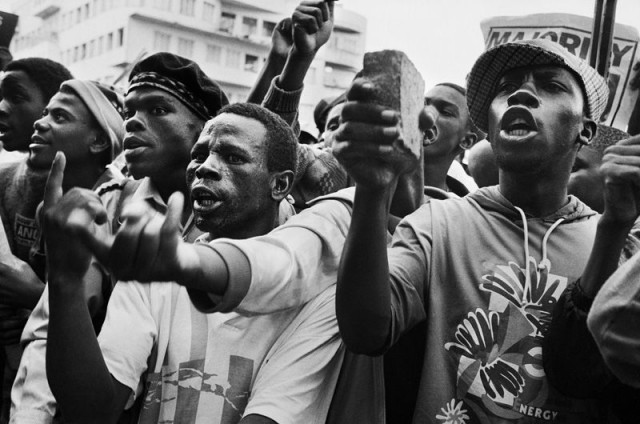Human Rights
At the end of the colonial era, each new African nation became responsible for ensuring the human rights of its citizens. Unfortunately, the continent's record since then has been very poor, with widespread abuses ranging from censorship of the press to genocide. By the early 2000s, many international organizations had become involved in promoting human rights in Africa and conditions had begun to improve in some places.
Defining Rights
In 1948 the United Nations produced the Universal Declaration of Human Rights, a document listing the basic rights and freedoms that every human being should enjoy. The declaration covered a wide range of legal, political, economic, and social rights, such as the right to equal protection under the law, the right to participate in the political process, the right to own property, and the right to education. It has served as a basis for various other international agreements promoting human rights.
The nations of Africa have made a number of formal pledges to ensure human rights. In 1981 the ORGANIZATION OF AFRICAN UNITY (OAU) adopted the African Charter of Human and Peoples' Rights, also called the Banjul Charter. The charter established the African Commission on Human and Peoples' Rights to make recommendations to individual governments and the OAU.

The Banjul Charter includes several features that reflect Africa's particular circumstances, needs, and culture. It emphasizes the right to development and stresses economic rights (such as the right to food, shelter, health care, and education) over civil and political rights. It also views human rights in the context of the group or community, not of the individual. In addition to listing individuals' rights, it includes their duties to the family, community, and state.
In the Muslim nations of North Africa, Islamic law (Shari'a) and tradition shape local practices. In 1990 the countries belonging to the Organization of the Islamic Conference met in EGYPT and adopted the Cairo Declaration on Human Rights in Islam. Written in response to criticism that Islamic tradition did not protect human rights sufficiently, it lists most of the rights covered in other international documents.
Violators and Watchdogs
Like nations elsewhere in the world, African nations have failed in many ways to live up to the high ideals embodied in their human rights charters and declarations. From the independence era until about 1990, most states were governed by military rulers, dictators, or one-party regimes. In many nations civil rights were limited, and people who openly disagreed with or criticized the government faced arrest, even torture and execution. Many simply “disappeared.”
The worst violations of civil rights have involved genocide and terror conducted by the state. For example, during the rule of Francisco Macias Nguema in EQUATORIAL GUINEA, from 1968 to 1979, there was widespread slaughter, and between one-third and one-half of the population was driven from the country. Genocidal massacres killed as many as 500,000 people in UGANDA in the 1970s and 1980s. The 1990s brought horrifying outbreaks of violence between the Hutu and Tutsi people of RWANDA and BURUNDI. Rape and violence against women became a weapon in conflicts such as the civil strife that raged in ALGERIA in the 1990s, making that country the most violent in North Africa.
International groups such as Human Rights Watch and Amnesty International have tried to monitor and report on human rights abuses. Until the 1990s the human rights movement within Africa was extremely weak, limited to some scholars and students, church leaders, and professional people, especially lawyers. In the 1990s a much broader section of the population actively promoted human rights. Supporters formed groups such as Nigeria's Civil Liberties Organisation and the Egyptian Organization for Human Rights. African women, a powerful force for change, became increasingly involved in organizations working to improve not just women's rights but human rights in general. (See also Apartheid, Genocide and Violence, Law and Legal Systems, Refugees, United Nations in Africa.)